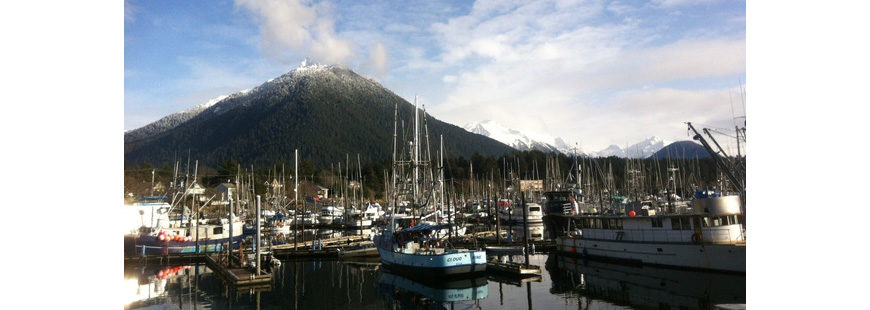Senator Lisa Murkowski’s (R-AK) legislation, the Improving Agriculture, Research, Cultivation, Timber, and Indigenous Commodities (ARCTIC) Act, is a comprehensive piece of legislation containing provisions that are important to small commercial fishermen, working waterfronts, and indigenous fishing communities. The legislation seeks to improve federal agricultural programs so more groups can benefit from them.
“We applaud Senator Murkowski’s work to expand and sharpen USDA’s vision when it comes to seafood. The seafood provisions in the ‘Improving ARCTIC Act’ will help consumers differentiate between wild harvested seafood and genetically engineered or lab-grown seafood; the provisions also prevent the federal government from imposing off-shore aquaculture on States such as Alaska that have wisely protected wild fish stocks from the impacts of this damaging industry. Senator Murkowski has helped the USDA remember that investments in America’s seafood industry and fishing communities benefit our Nation’s health and food security, and ALFA’s members appreciate her hard work and leadership,” said Linda Behnken, Alaska Longline Fishermen’s Association and the Network’s Policy Council co-chair.
Senator Murkowski’s office provided the following summaries of the seafood provisions in the Improving ARCTIC Act:
- Including Country-of-Origin Labeling (COOL) for Crab: Include “cooked crab” as a covered commodity under USDA’s Country-of-Origin Labeling Program. This provision would fix a loophole to ensure U.S. seafood is the only seafood being labeled as American.
- Expanding Eligibility of Wild-Caught Fish and Shellfish to USDA Programs: Revises the language in multiple USDA programs that provide grants or assistance to farmers and ranchers, clearly extending eligibility to commercial fishermen to ensure they have the same support opportunities available to farmers and ranchers.
- Supporting Domestic Seafood Production: Establishes a pilot grant program for domestic seafood processing in coastal communities. This provision bolsters domestic processing, strengthening Alaskan communities, food security, and seafood economy. This provision also prohibits any federal agency from regulating offshore finfish farming unless specifically authorized by Congress.
- Creating a Grant Program to Promote the Reuse, Recycling, and Sustainable Use of Marine Products from Seafood Industry: Authorizes grants to support projects to reuse, recycle, or sustainably use chitin derived from marine animals, seaweed, marine waste from seafood, and any other seafood byproduct that would otherwise end up in a landfill or waste disposal facility.
- Extension of Credit to Businesses Providing Services to Producers or Harvesters of Aquatic Products: The Fishing Industry Credit Enhancement Act expands Farm Credit eligibility to fishing industry support services to put them on equal footing with farming and ranching. The Alaska fishing industry depends on high quality support services and expanding Farm Credit opportunities ensures Alaskan fishermen have the support they need.
- Creating a “Wild USA Seafood” Label: Establish a USDA label for wild seafood harvested in U.S. waters. This voluntary label would assure consumers that their seafood was harvested from the most sustainably managed fisheries in the world.
- Requiring a Market Name for Genetically Engineered Fish: This would inform consumers that the seafood they are purchasing has been genetically modified by requiring labeling of such seafood as “genetically engineered.”
- Requiring a Market Name for Cultivated Fish: Require a USDA label for cultured fish (also referred to as lab-grown or cultivated) to increase seafood labeling transparency to ensure consumers can make informed purchasing choices.
The bill also aids food producers and processors by creating or expanding food processing capacity, allowing Alaskans more affordable access to Alaskan-grown foods.
The Network supports organizations like the Wave Foundation, who are assisting local communities, especially indigenous communities, to reduce food insecurity and increase the use of locally sourced foods. Included in the Improving ARCTIC Act are the following provisions aimed at improving tribal food security:
- Making permanent a pilot program that allows Tribes to administer USDA procurement of locally-grown, tribally-produced food for nutrition assistance packages that are delivered to Alaska Native communities.
- Amending the Buy Indian Act to establish first-ever requirements that USDA procure goods and service from Tribes and tribally-owned businesses.
The Improving ARCTIC Act represents an overdue reminder to USDA that seafood is an important part of the food and commodity economy. These are sensible provisions designed to increase the viability of small businesses in the seafood industry, improve working waterfronts, and give long overdue recognition to the important contributions made by tribal communities and businesses. With any luck, we will see some form of this legislation enacted into law this year.


